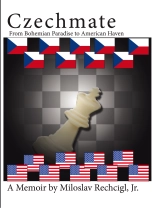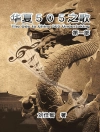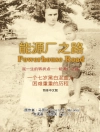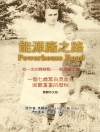These reminiscences are an intimate account of Mila Rechcgls saga, his fascinating life, his varied and successful professional career, and his highly visible public life, encompassing some fifty years, since the earliest childhood in a small hamlet in northeastern rural Bohemia to his government career in the Worlds Capital, Washington, DC and spending his retirement years in active scholarship and voluntary work for non-profit organizations. He views his life as a chess game, in which he confronts various challenges head-on, usually ending with a checkmate in his favor.
He describes his idyllic youth at family mill, in an area known as Bohemian paradise, talks fondly of his parents and grandparents, the time he spent in a one-class rural school, followed by eight years in gymnasium in Mlada Boleslav, four during the Nazi occupation of Czechoslovakia and four in the post-War era under the communist threat. After successful escape from communist Czechoslovakia, he immigrates to America, spending his greenhorn years in New York City, working in a glass jewelry factory. He gets a scholarship, is accepted by a prestigious Ivy League school (Cornell) and with skimpy English manages getting his bachelors degree in biochemistry in two and half years, followed by Masters and Ph.D. Gets hired by the National Institutes of Health in Bethesda where he conducts some pioneering research on enzyme turnover and later is offered training in science policy and administration, leading to his appointment as Special Assistant for Nutrition and Health, and later is put in charge of research at the US State Departments Agency for International Development.
Beyond the call of duty, he publishes numerous books and in his spare time, devotes energies to organizing an international Czechoslovak Society of Arts and Sciences into a first-class institution and does premier research on immigration history.
Om författaren
Mila Rechcigl, as he likes to be called, is a versatile person with many talents, a man of science and organization professionally, and renaissance man by breadth of his knowledge and scholarly interests. Born in Czechoslovakia to a son of the youngest member of the Czechoslovak Parliament, he spent the War years under Nazi occupation and after the communists coup dtat escaped to the West and immigrated to the US. He received training as biochemist at Cornell University and later served as a research biochemist at NIH. Following his additional training he became a science administrator, first at the DHEW and later at US Department of State and AID.
Apart from his scientific and science administrative pursuits, he served as an editor of several scientific series and authored more than thirty books and handbooks. Beyond that, he is considered an authority on immigration history, on which subject he had written extensively. He was also one of the founders of the Czechoslovak Society of Arts and Sciences (SVU) and for many years served as its President.












